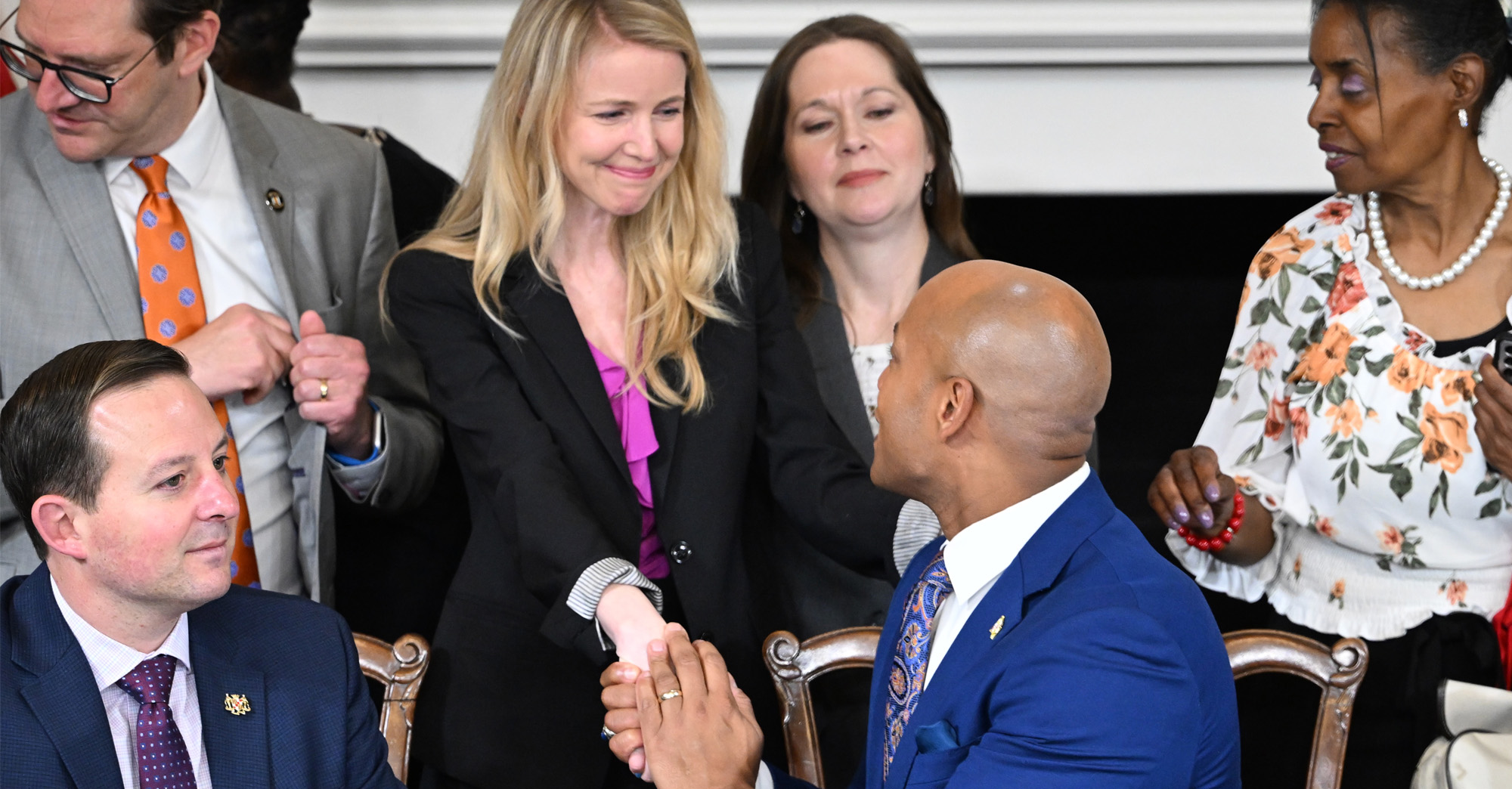Centers

Customize Your Legal Education with UBalt Law's Centers
The UBalt School of Law’s centers are designed to help you customize your legal education
and allow you to pursue work you’re passionate about while enriching your knowledge
of the law. Our centers foster academic leadership, community engagement and advocacy
for innovative legal policy.
By participating in a center’s work, you will help effect change in the legal system.
Centers at the UBalt School of Law
![]()
The Center on Applied Feminism works to apply the insights of feminist theory to create social change and to reform
law. In addition to holding conferences and regular colloquia on emerging legal areas
that intersect with feminism, the center sponsors the Special Topics in Applied Feminism
course and helps students plan for careers in feminist advocacy.
The center co-sponsored with the UBalt Law Review the March 2025 symposium "States and the Battle to Secure Reproductive Freedoms Post-Dobbs." The symposium consisted of four panels of experts from across the country with a focus
on democracy, family planning, specific states, and calls to action, providing an
enlightening look into the ongoing battle for reproductive freedom across the country.
The Center for Criminal Justice Reform supports community-driven efforts to improve public safety and address the harm and
inequity caused by the criminal legal system, bringing together diverse voices and
decision-makers to examine how the criminal legal system currently functions, and
to collaborate on strategies that promote justice throughout the country and in Baltimore.
Launched in January 2022, the center has hosted several impactful events, including
“Innocence Isn’t Enough: The Intentionally High Bar to Exoneration,” a panel discussion
on racial disparities in prosecution in Baltimore, a panel on juvenile justice reform
in Maryland, and a discussion with the author of the investigative report on the Baltimore
Police Department’s corrupt Gun Trace Task Force.
The Center for International and Comparative Law studies human rights, democratic institutions, international trade, international
courts and the legal basis of international relations. It also sponsors learning opportunities
involving a broad range of international law topics for students, staff and faculty
at the law school. The center houses the Secretariat of the American Society of Comparative
Law and directs the publication of its book series, ASCL Studies in Comparative Law. The center also directs the publication of the series ASIL Studies in International Legal Theory for the American Society of International
Law.
The Center for the Law of Intellectual Property and Technology promotes research, education and legal practice in three intertwined areas of law.
One aspect of the center’s focus is intellectual property law, including copyright
law, patent law, trade secret law and trademark law. The center examines and publicizes
legal issues stemming from the use of cutting-edge technologies and supports the use
of technology to understand the law.
The Center for Sport and the Law sponsors academic symposia, generates scholarship and engages in community partnerships.
It provides students with an enhanced understanding of the legal structures and institutions
that shape various athletic contexts and offers opportunities for real-world application
of their knowledge in the increasingly complex sports industry.
In April 2025, the center hosted a discussion on "Sportwashing and National Identity."
This panel examined the complex intersections of sports, governance, and national
image, with a focus on the phenomenon of “sportswashing” — where nations leverage
sports to enhance their public image.
The Sayra and Neil Meyerhoff Center for Families, Children and the Courts promotes child and family well-being while inspiring the next generation of attorneys
to prioritize the power, voice, and needs of families. We engage communities in all
that we do and work tirelessly to transform systems that create barriers to family
well-being.. The center is committed to creating a society where children and families thrive without unnecessary involvement in the
legal system. The center presents an annual symposium. The 2024 symposium, "Keeping Youth in Community: Policies, Practices, and Programs to Promote Youth Justice," featured keynote speaker
Nate Balis, from the Annie E. Casey Foundation.
CFCC’s Tackling Chronic Absenteeism Project (TCAP) -- launched in 2005 as the Truancy
Court Project -- is a voluntary, non-punitive, holistic and data-driven intervention
that works to identify and address the root causes of truancy for each child, improve
behavior and student and family attitudes toward school, and build a foundation for
long-term academic success.

